Pskov Kremlin (Krom)
19 photo with description04.08.2020 11:42
04.08.2020 11:42
Andrey Panevin

In the late 11th - early 12th centuries, a fortress was built at the confluence of the Pskov and Velikaya rivers, which became one of the western outposts of Russia.
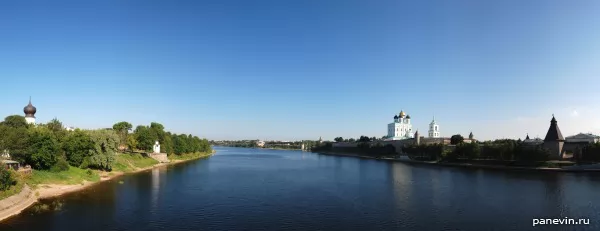
Panorama of the Velikaya River from the bridge. The newly built chapel in honor of Princess Olga (the founder of Pskov) offers a wonderful view across the Velikaya River to the Pskov Krom (Kremlin).
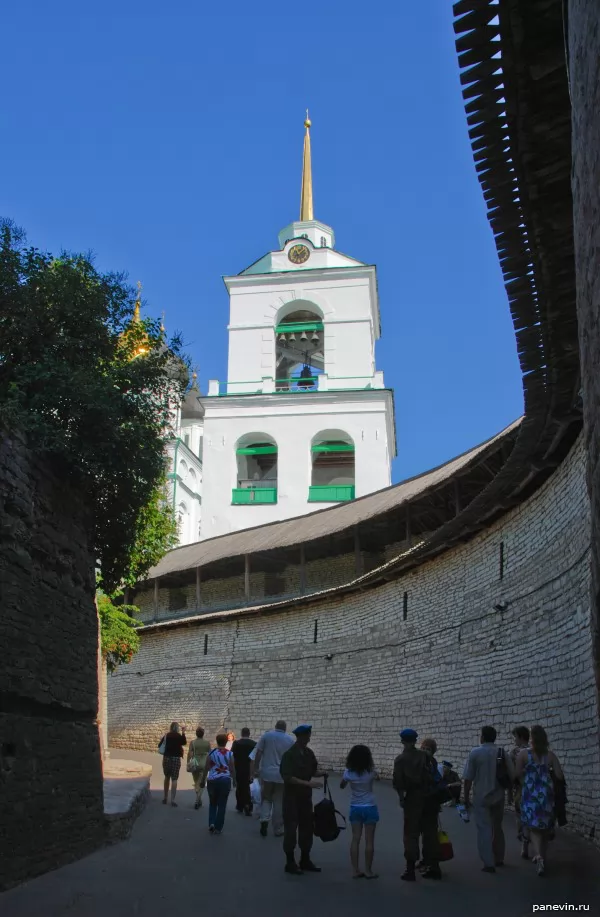
Trinity Cathedral and the fortress wall.
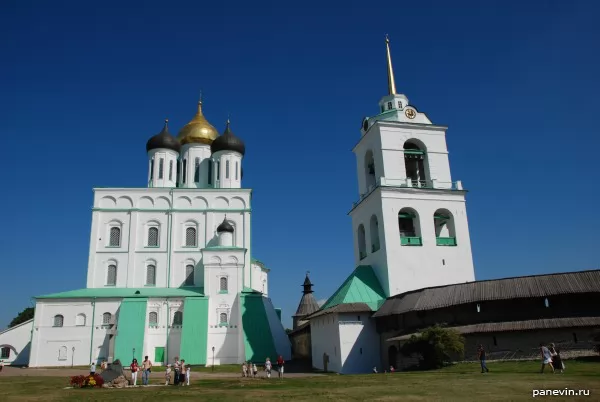
Trinity Cathedral Pskov Kremlin (1682-1699, the first cathedral was erected back in X century) was the main shrine not only of the city of Pskov, but of the entire Pskov land. For the Pskovites, it also mattered that the St. Sophia Cathedral for the Novgorodians.
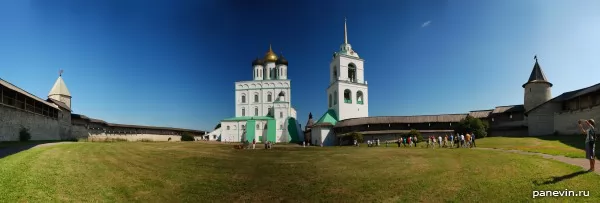
Panoramic view of Trinity Cathedral Pskov Kremlin (Krom).
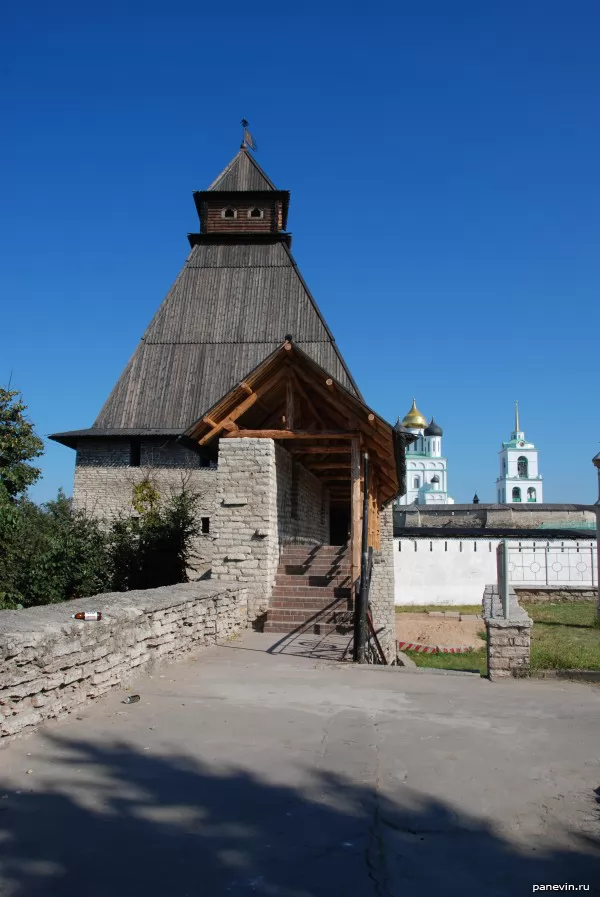
The Vlasyevskaya Tower is one of the main defensive towers of the city of Pskov, which was erected at the beginning of the 15th century. The tower got its name from the Church of Blasius, which was erected here a little earlier in 1372.
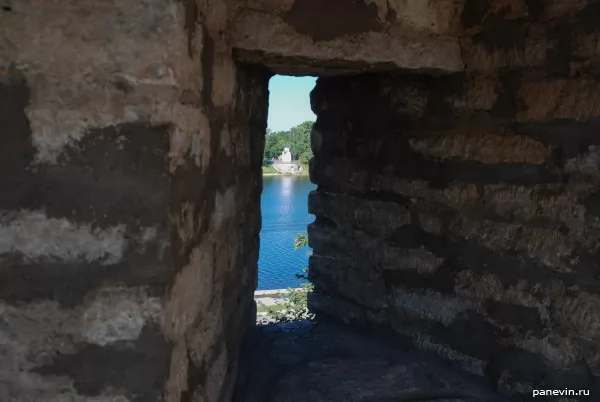
Loophole.
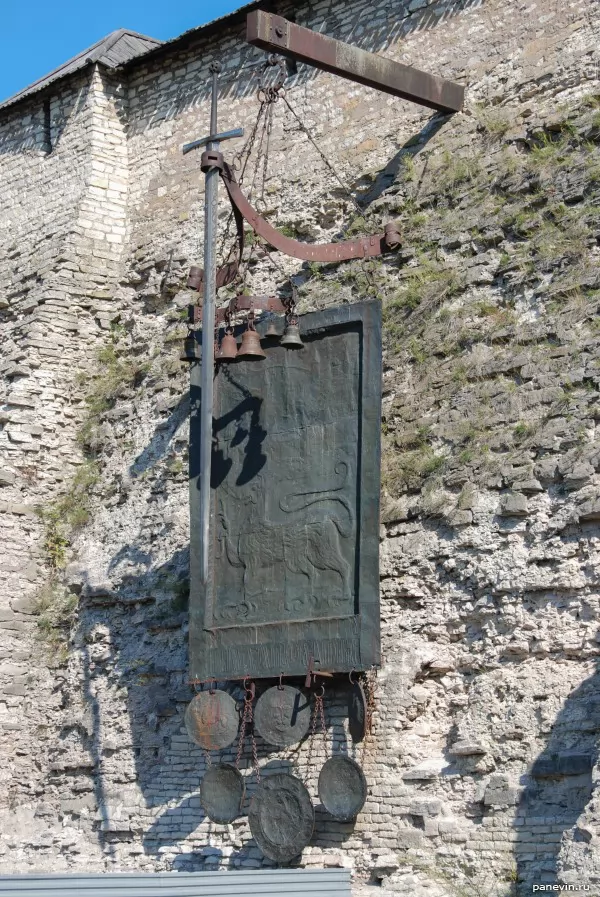
Sword and coat of arms of Pskov.
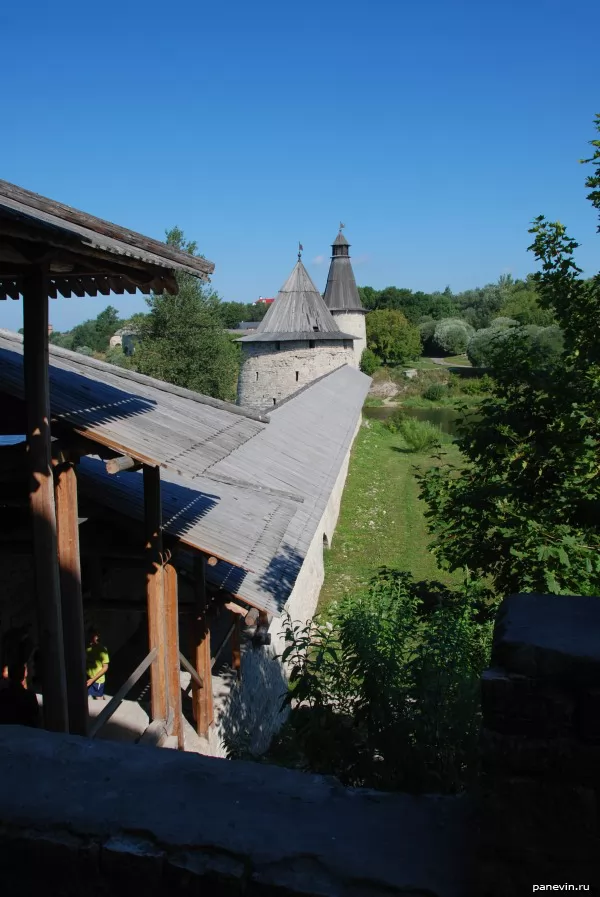
Lower lattice towers - Flat and High. The lower lattice towers are a common name for the defensive towers of Russian fortresses. Such towers were located on the banks of rivers above the streams that flowed into the fortress. During the siege, the streams were locked with bars, which is why such a name. Similarly, in the fortress Pskov-Pechersk Monastery there are towers of the Upper and Lower Lattices.
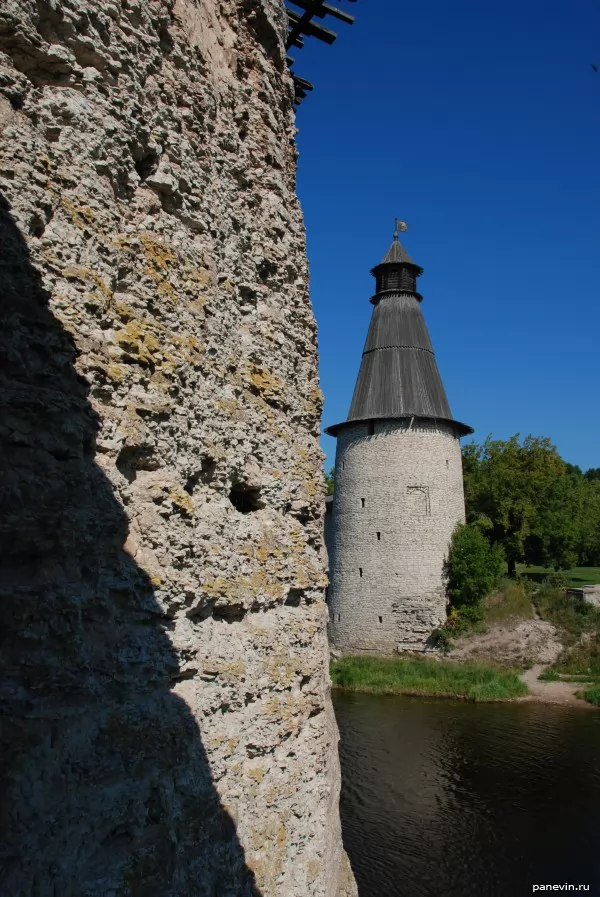
A high tower on the banks of the Pskov River.
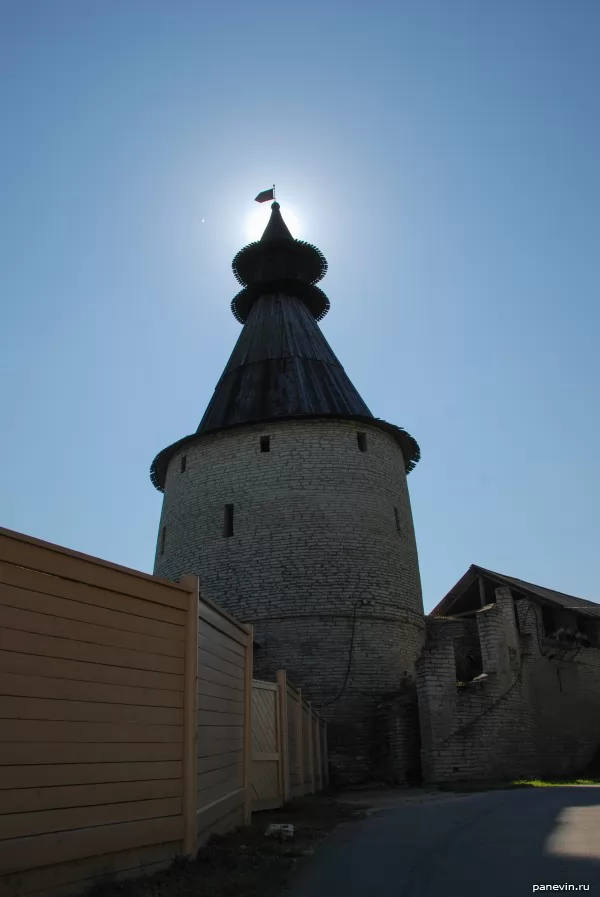
Kutekroma is the northern tower of the Pskov Kremlin.
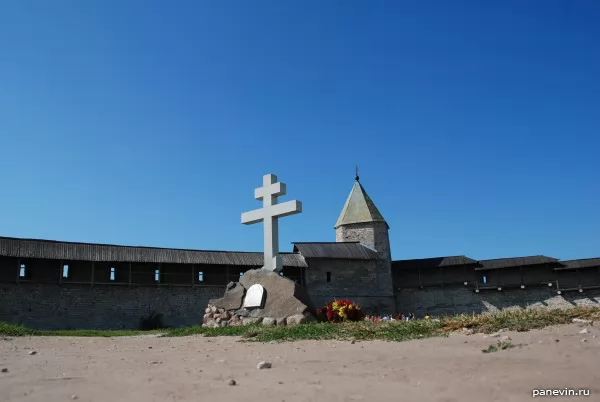
Death tower and a memorial cross on the site of the Annunciation Cathedral, destroyed during the Great Patriotic War.
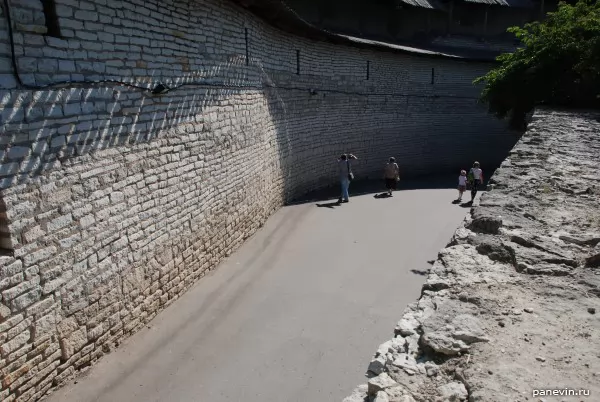
Fortress wall. Zakhab is a long, narrow corridor that connects the outer fortress gate in the tower with the inner gate. Such an engineering structure was one of the distinguishing features of the ancient Russian fortification. Zahab made it harder for the enemy to assault and simplified the defense for the defenders.
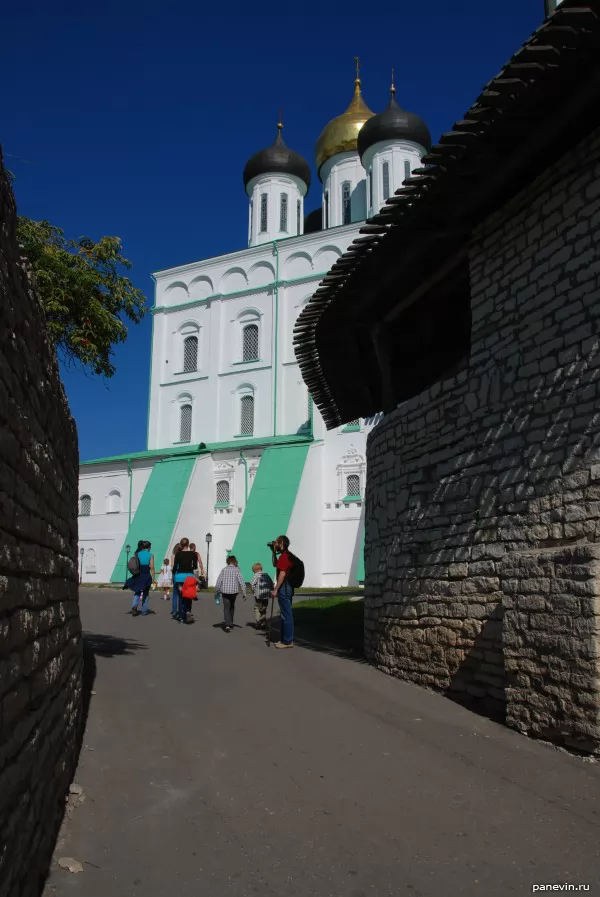
Trinity Cathedral, fortress wall.
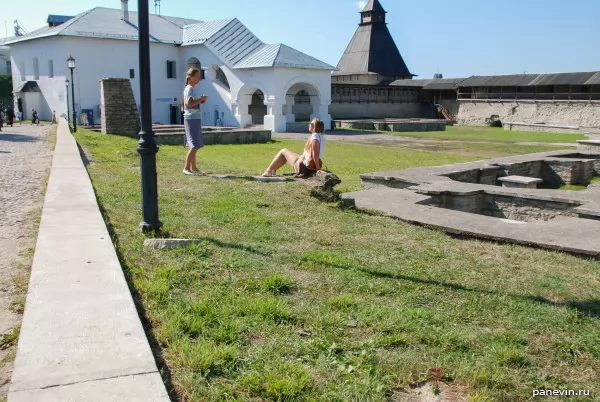
In the foreground on the right is the Dovmont town, the foundations of the oldest Pskov buildings. Behind - the Kremlin chambers.
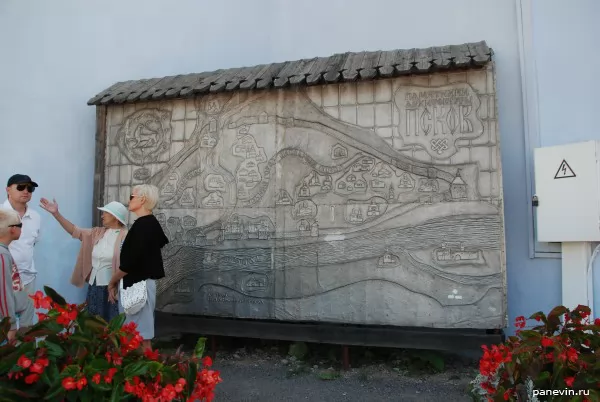
The plan of the Pskov Kremlin.
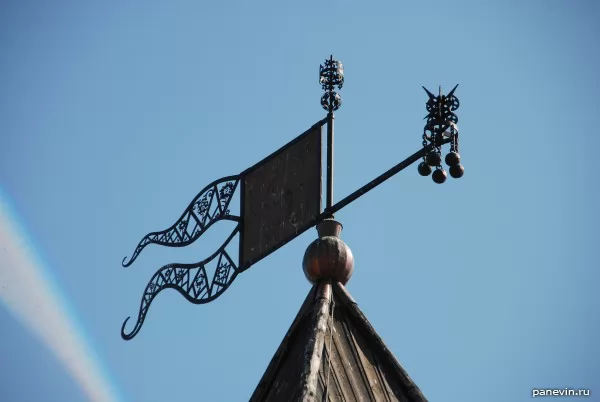
Prapor of the Rybnitsa Tower.
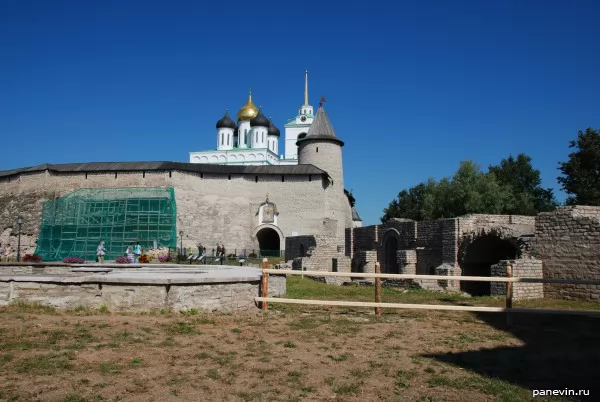
Dovmont city (in the foreground).
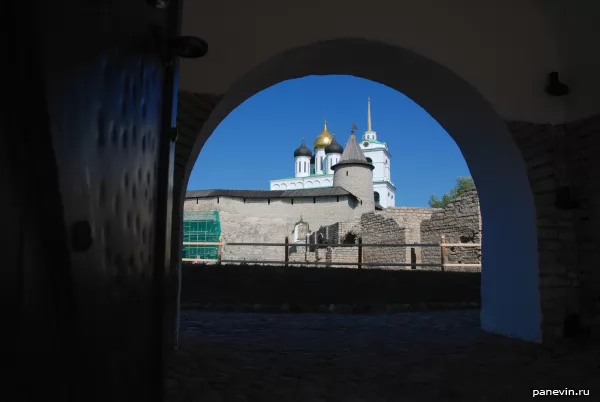
The Holy Gates of the Rybnitsa Tower, view of the Trinity Cathedral.
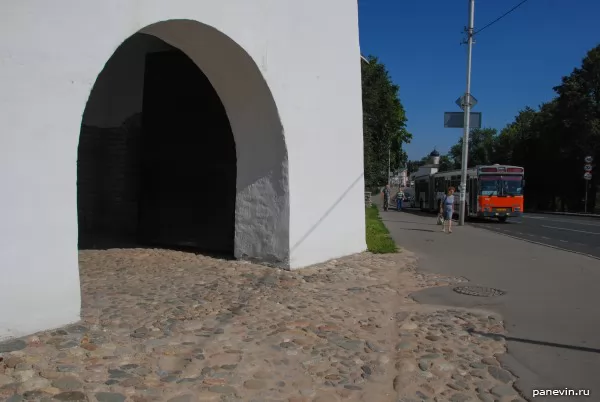
The Holy Gates of the Ribnita Tower.
The Pskov fortress was rightfully considered impregnable - the citadel of the Kremlin + defensive walls around Dovmont's city + external defensive structures around the posad (only fragments of the walls remained from the latter). The rivers Velikaya and Pskova provided additional natural protection.

Panorama of the Velikaya River from the bridge. The newly built chapel in honor of Princess Olga (the founder of Pskov) offers a wonderful view across the Velikaya River to the Pskov Krom (Kremlin).

Trinity Cathedral and the fortress wall.

Trinity Cathedral Pskov Kremlin (1682-1699, the first cathedral was erected back in X century) was the main shrine not only of the city of Pskov, but of the entire Pskov land. For the Pskovites, it also mattered that the St. Sophia Cathedral for the Novgorodians.

Panoramic view of Trinity Cathedral Pskov Kremlin (Krom).
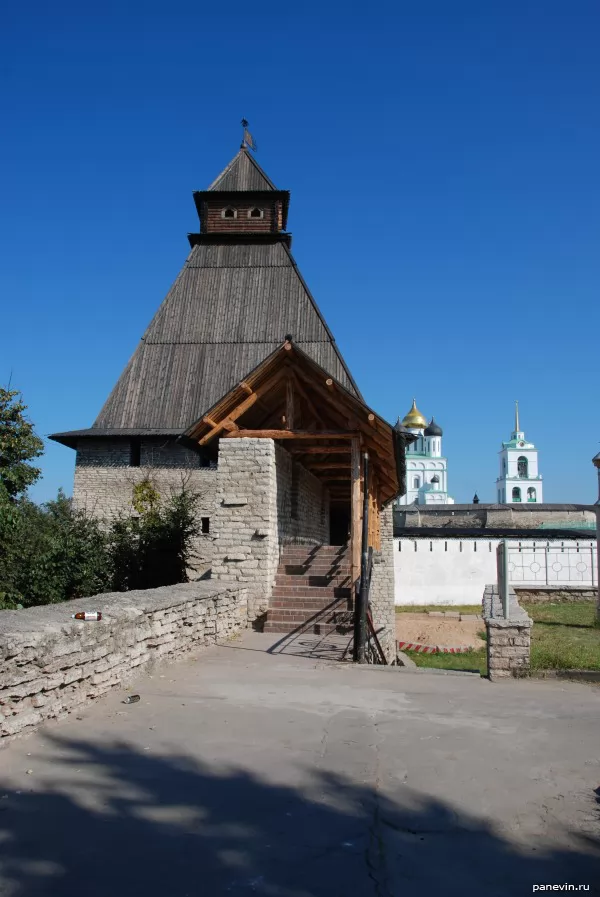
The Vlasyevskaya Tower is one of the main defensive towers of the city of Pskov, which was erected at the beginning of the 15th century. The tower got its name from the Church of Blasius, which was erected here a little earlier in 1372.
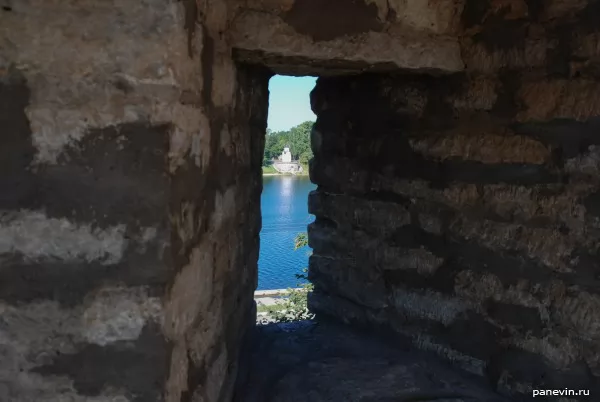
Loophole.
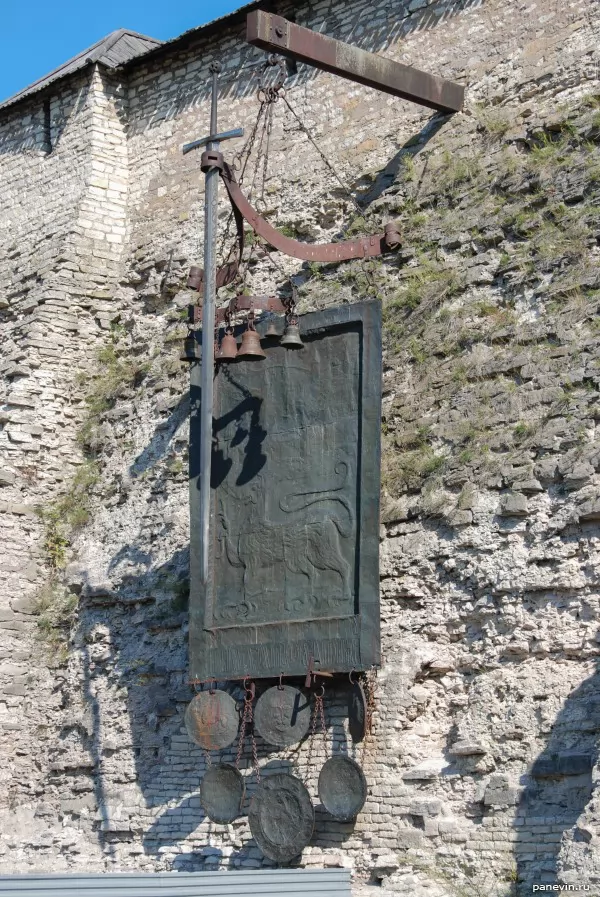
Sword and coat of arms of Pskov.
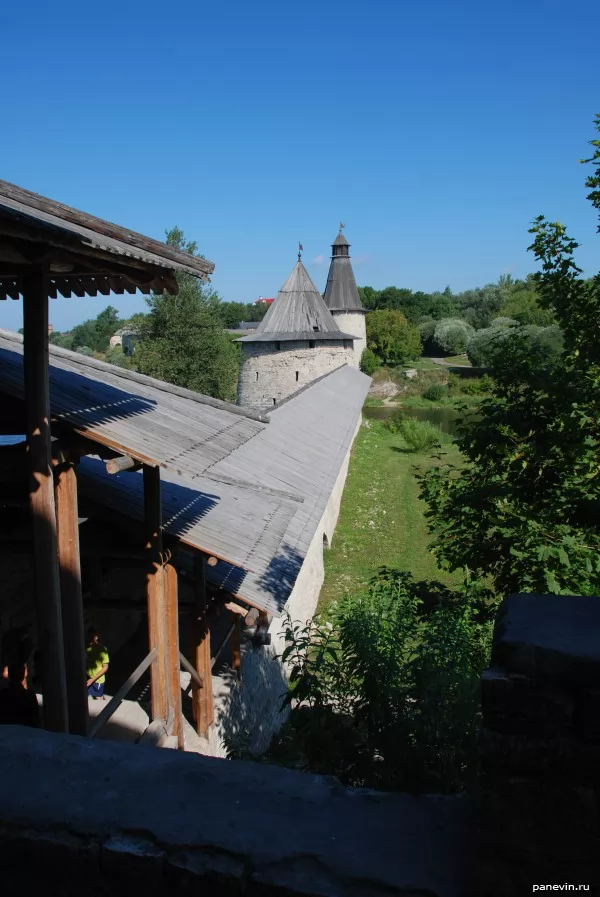
Lower lattice towers - Flat and High. The lower lattice towers are a common name for the defensive towers of Russian fortresses. Such towers were located on the banks of rivers above the streams that flowed into the fortress. During the siege, the streams were locked with bars, which is why such a name. Similarly, in the fortress Pskov-Pechersk Monastery there are towers of the Upper and Lower Lattices.
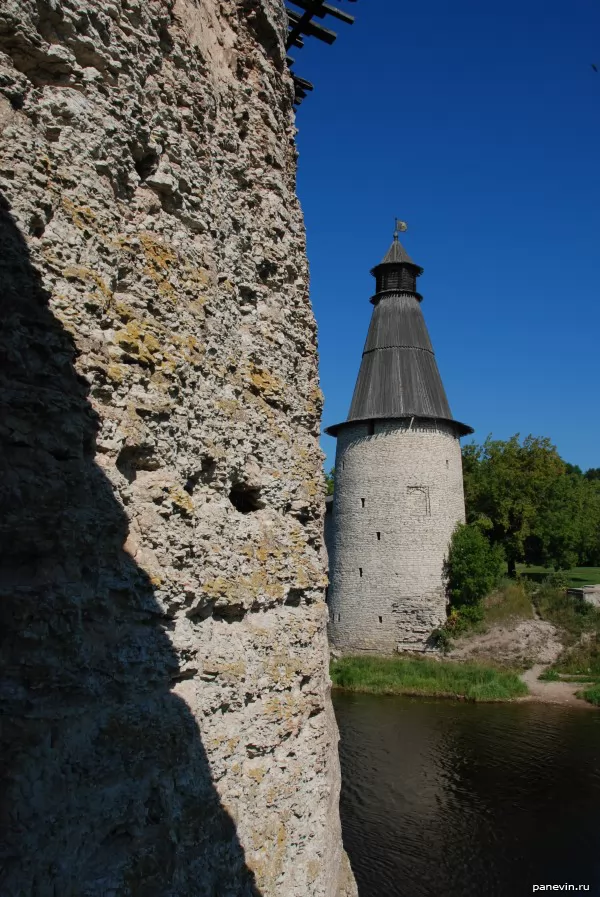
A high tower on the banks of the Pskov River.
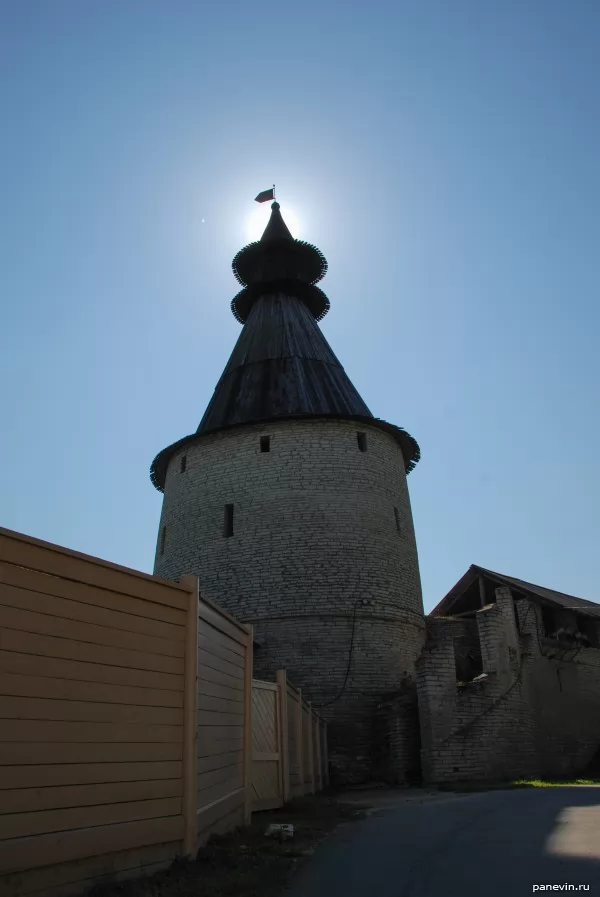
Kutekroma is the northern tower of the Pskov Kremlin.
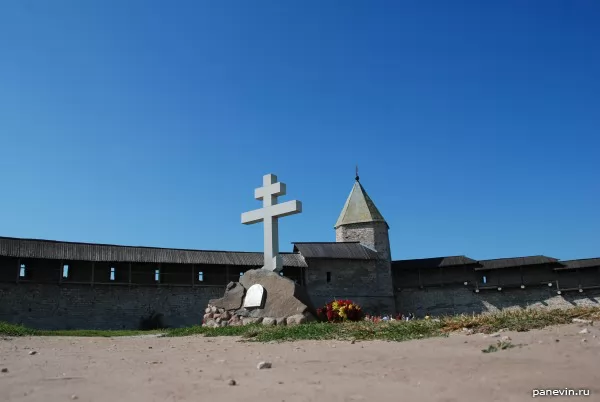
Death tower and a memorial cross on the site of the Annunciation Cathedral, destroyed during the Great Patriotic War.
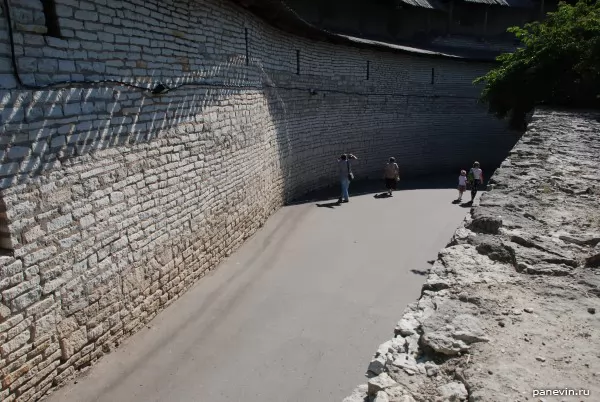
Fortress wall. Zakhab is a long, narrow corridor that connects the outer fortress gate in the tower with the inner gate. Such an engineering structure was one of the distinguishing features of the ancient Russian fortification. Zahab made it harder for the enemy to assault and simplified the defense for the defenders.
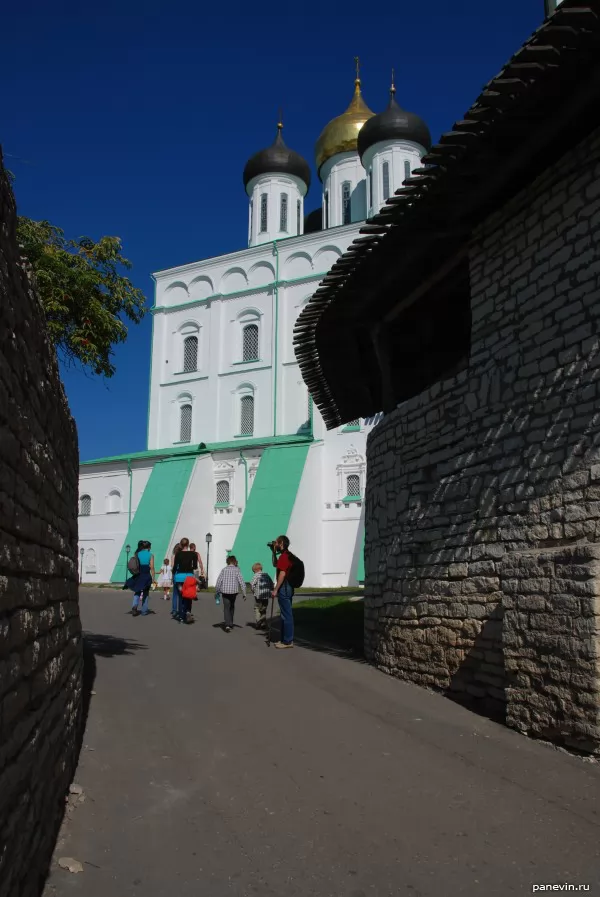
Trinity Cathedral, fortress wall.
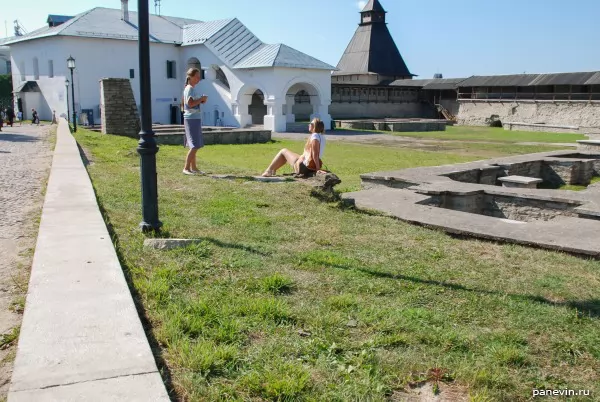
In the foreground on the right is the Dovmont town, the foundations of the oldest Pskov buildings. Behind - the Kremlin chambers.
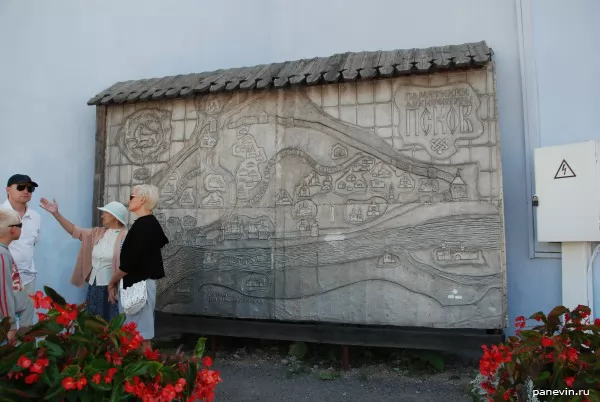
The plan of the Pskov Kremlin.
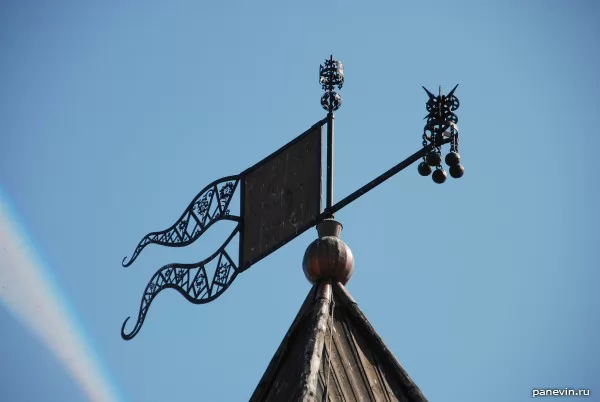
Prapor of the Rybnitsa Tower.
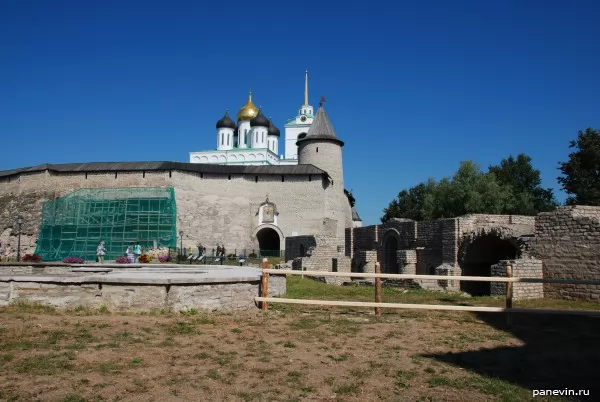
Dovmont city (in the foreground).
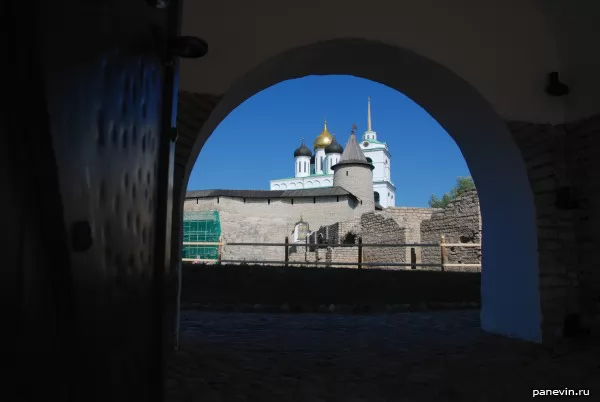
The Holy Gates of the Rybnitsa Tower, view of the Trinity Cathedral.
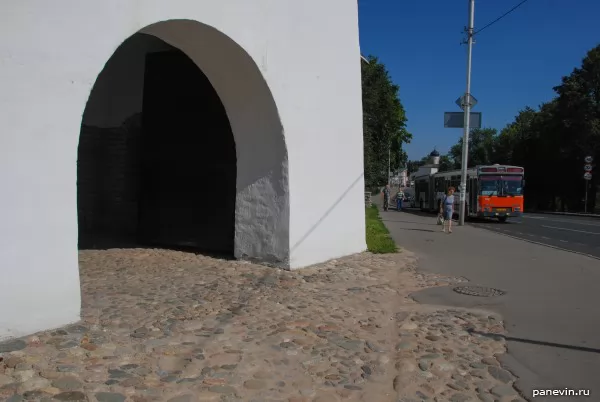
The Holy Gates of the Ribnita Tower.
The Pskov fortress was rightfully considered impregnable - the citadel of the Kremlin + defensive walls around Dovmont's city + external defensive structures around the posad (only fragments of the walls remained from the latter). The rivers Velikaya and Pskova provided additional natural protection.
Share:
Themes: fortification 35 fortresses 25 photos 417 Pskov 2 travel 286
Ticket sales through JetRadar.com service without commissions and markups.
← Blog
pskovskiy_kreml_krom
blog






